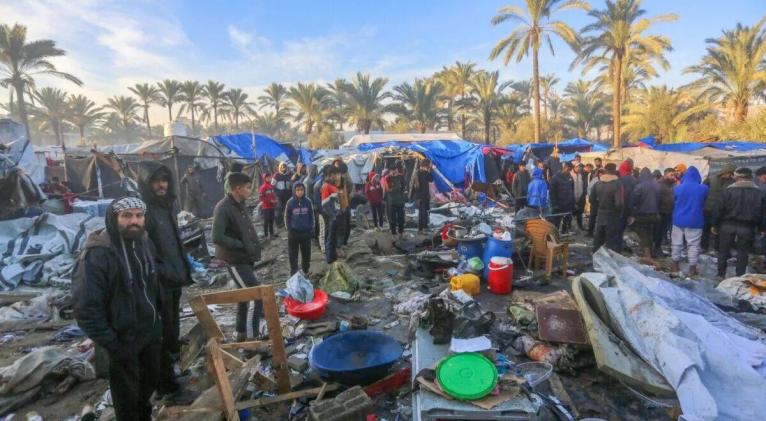Double standards: Between Gaza, Los Angeles and Ukraine
especiales

While Gaza is being obliterated, entire families erased from civil records, children deprived of food and medicine, with doctors and patients detained and bodies left for dogs to scavenge, the world stands by in silence. This harrowing scene unfolds daily in Gaza, where the occupation perpetrates the most heinous forms of genocide and ethnic cleansing, all amid a disgraceful international silence. Meanwhile, we witness a global outcry and swift action in response to other crises, such as the Russian invasion of Ukraine and the wildfires in Los Angeles, highlighting the blatant double standards in the international community’s response to humanitarian crises.
This is not about gloating over the misfortunes of others; such behaviour contradicts the human and ethical values that Islam calls us to uphold. We abhor injustice and aggression but do not wish harm upon those who suffer. Thus, the comparison here aims to expose the injustice and emphasise the need for justice, not to revel in the tragedies of others.
When Ukraine was invaded by Russia, the international community responded swiftly and forcefully, imposing strict economic sanctions on Russia and providing substantial military and economic support to Ukraine. Western media extensively covered the suffering of the Ukrainian people, rallying global solidarity. This global empathy was evident through support campaigns and coverage of the stories of Ukrainian refugees seeking safety.
OPINION: When it comes to genocide and Palestine, the world is — deliberately — getting its priorities wrong
In contrast, the genocide perpetrated by the occupation in Gaza, despite International Criminal Court rulings describing it as genocide and ethnic cleansing, does not garner the same attention or international response. The continuous bombing, suffocating blockade and systematic destruction of infrastructure in Gaza received limited reactions from the international community, often limited to non-binding condemnations. In many cases, violence against Palestinians is justified under pretexts like “self-defence”, while the atrocities and violations committed by the occupation against civilians are overlooked. This disparity raises questions about the international community’s commitment to the universal and indivisible human rights principles.
Similarly, the response to natural disasters underscores these double standards. When wildfires broke out in Los Angeles, local and international resources were quickly mobilised. Western media covered the event in detail, focusing on the material losses suffered by the wealthy and celebrities. There was widespread sympathy for the victims and calls for help rebuilding what the fires destroyed. In contrast, when Gaza is bombed, thousands of homes are destroyed and thousands of residents are displaced, we rarely see a similar international response. The people of Gaza are often left to face their fate alone, isolated from the world in a reality of destruction and despair.
This inconsistency in response reflects clear double standards. We do not wish disasters upon others but seek justice and accountability for those responsible for crimes. We do not hope for divine justice to manifest in disasters affecting others, such as fires or natural calamities. These disasters result in significant material and human losses, but they are not how we wish to see justice achieved.
We aspire to see war criminals brought to justice, rights returned to their rightful owners and invaders and their agents expelled from our occupied lands.
Double standards are not just a Palestinian issue but a global one concerning the rejection of a world governed by the law of the jungle and the encouragement of international engagement with humanitarian issues. Is it still possible to have a unified stance against injustice, regardless of the location or people involved?
True justice requires the courage to face facts, prosecute criminals and restore rights to their owners. This is not a call for revenge but a call to build a future of justice.
Will anyone answer?














Add new comment